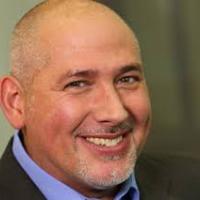How will big and better data help healthcare delivery and patient outcomes?
With the world’s population increasing and everyone living longer, healthcare costs continue to rise. But models of treatment delivery are rapidly changing, and many of the decisions behind those changes are being driven by data. This is helping to reduce costs.
Big Data in healthcare is being used to predict epidemics, cure disease, improve quality of life and avoid preventable deaths. The drive now is to understand as much about a patient as possible, as early in their life as possible – hopefully picking up warning signs of serious illness at an early enough stage so that treatment is more simple and less expensive. For the patient it will mean better, quicker and cheaper diagnosis and treatment, and better information about health care providers.
Pēteris Zilgalvis, Head of Unit ICT for Health and Wellbeing in the European Commission, says "Analysing disparate and highly dynamic data will benefit different fields like epidemiological research or early detection and prevention of diseases. By moving from a reporting approach (what has happened?) to a predictive approach (what will happen?), big data is creating a new knowledge era in the world of medical care."
The application of big data to healthcare offers new ways to accelerate research. Huge amounts of data on applicants will allow researchers to pick the best subjects. Recently, data-sharing arrangements between the pharmaceutical giants has led to breakthroughs such as the discovery that desipramine, commonly used as an anti-depressant, has potential uses in curing types of lung cancer.
The benefits of mass information need to be realised with due care and attention to the protection of personal data. Cyber thieves routinely target medical records, and reportedly earn more money from stolen health data than by pilfering credit card details. A balance must be found between privacy, security and innovation to improve administration of healthcare services, and increase efficiency. The right balance will lead to a healthier and wealthier Europe.
This Science|Business Network Dinner will explore the right balance for healthcare, whilst also addressing other related questions:
- As healthcare costs globally grow ever larger, how quickly can big data in healthcare be implemented to realise enormous cost savings through a more precise identification of unnecessary procedures or duplication of tests?
- The medical industry collects a huge amount of data but often it is siloed in archives controlled by different doctors’ surgeries, hospitals, clinics and administrative departments. How can adequate data crunching and data analytics applications be used to efficiently search, process and analyse massive datasets?
- How can medical and data professionals collaborate to enable them to peer into the future and identify problems before they happen?
- Can open access to data speed up healthcare delivery? What are the barriers to open access?
- How best to draw a comprehensive picture of the patient as an individual, in order to offer a tailored healthcare package?
- What are the policy priorities for big data in healthcare - ways to address privacy concerns; IP – ownership of medical data; the support of research on analytics; data transparency?
- Can big data become a strategic asset for healthcare companies?
18:00 Welcome cocktail
18:30 Panel discussion: How Big Data can make healthcare more effective
19:30 Dinner-debate with introduction by Xavier Prats Monné, describing the priorities he sees as the new Director General of DG SANTE, European Commission
Access to this event is free for members of the The Science|Business Network. For information on how to join the Network, please contact Ross Melzer or call +3228803044.
For enquiries regarding participation at this event, please contact Charlotte Martin.








 A unique international forum for public research organisations and companies to connect their external engagement with strategic interests around their R&D system.
A unique international forum for public research organisations and companies to connect their external engagement with strategic interests around their R&D system.